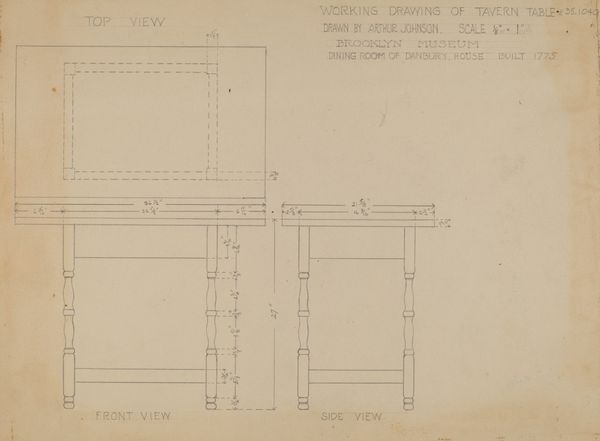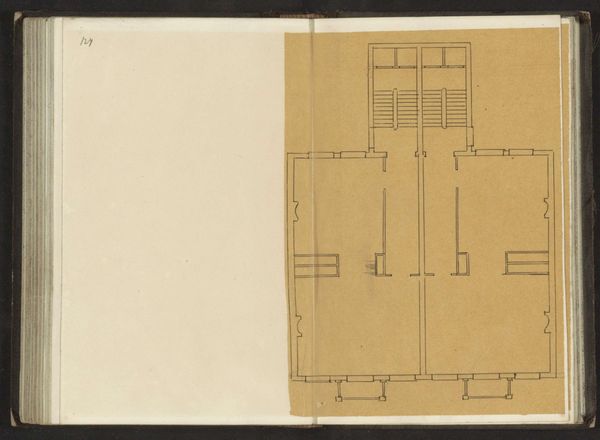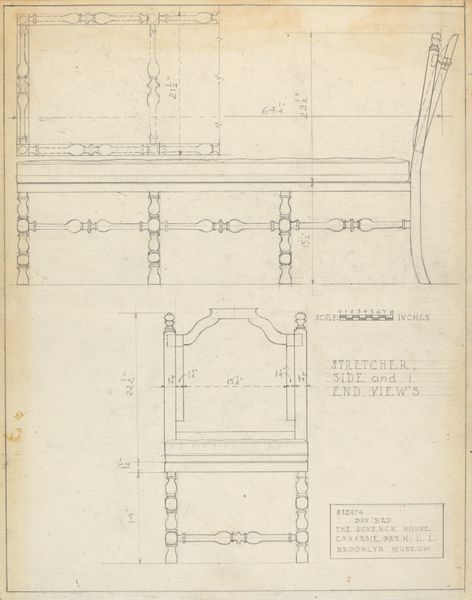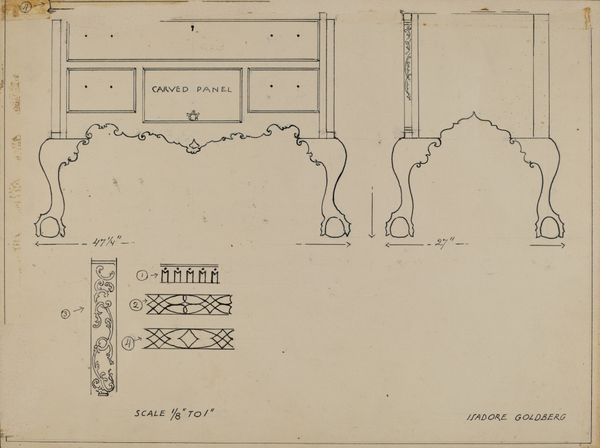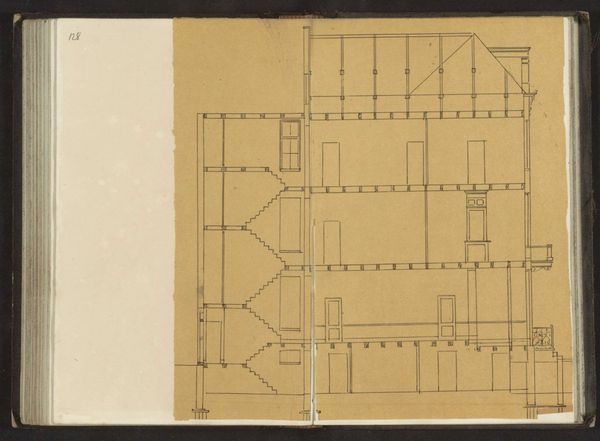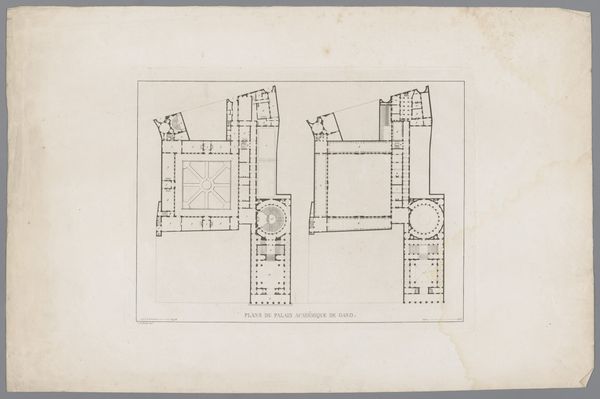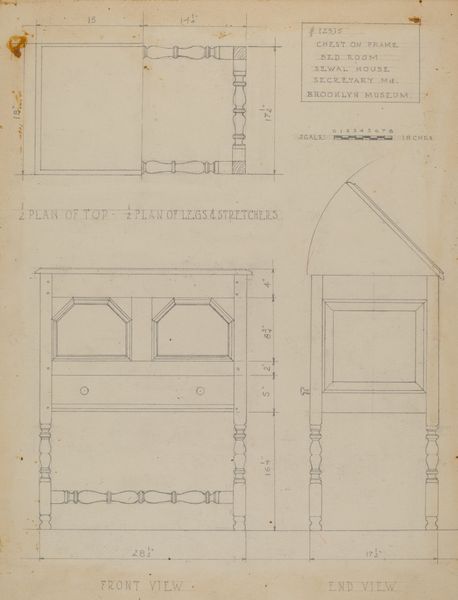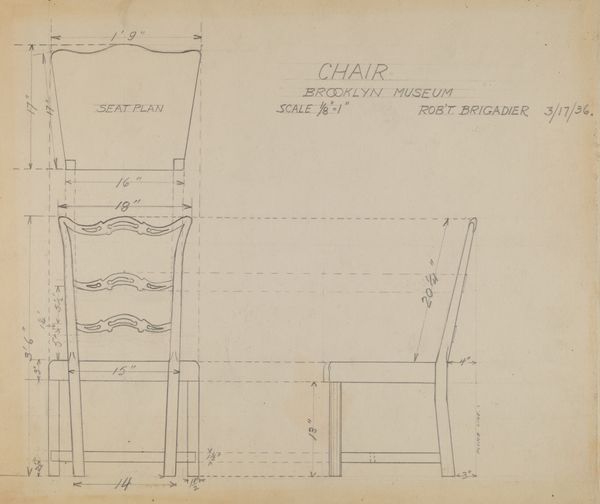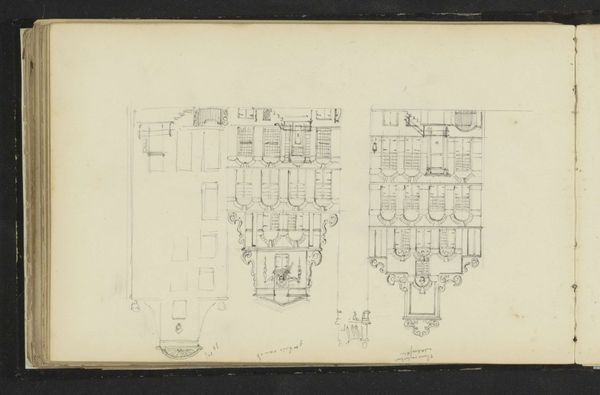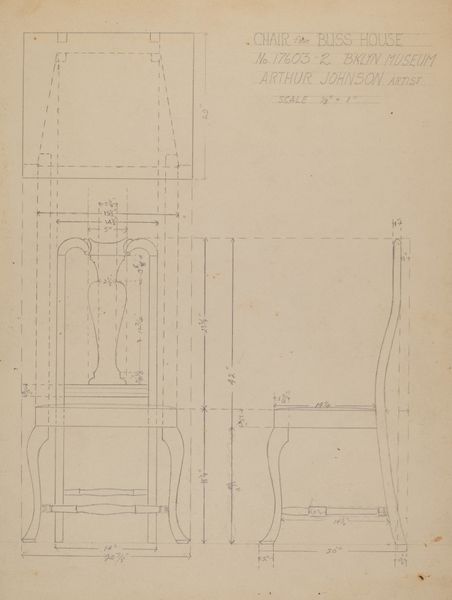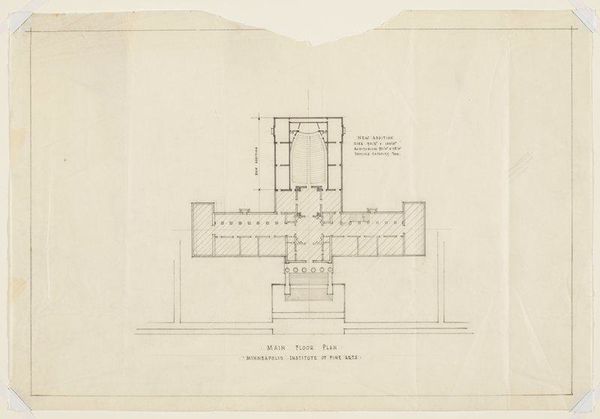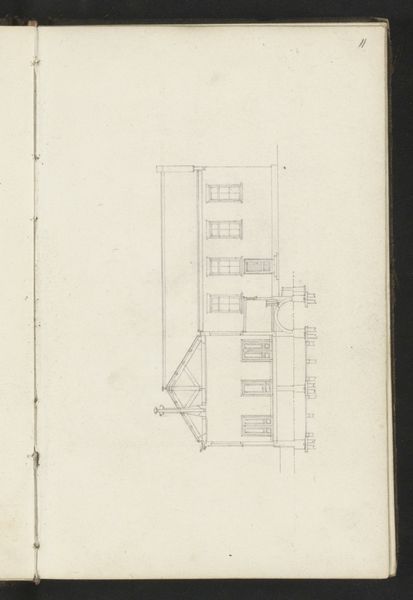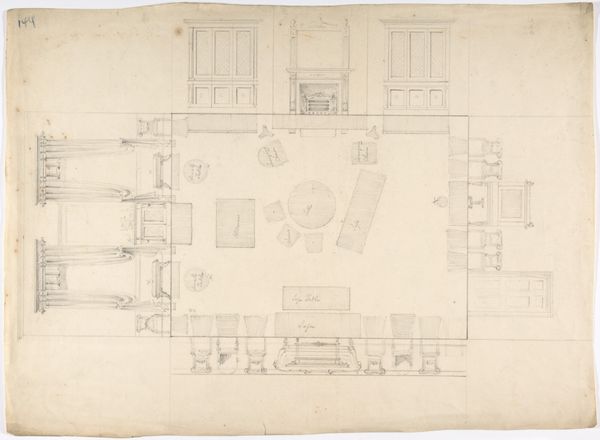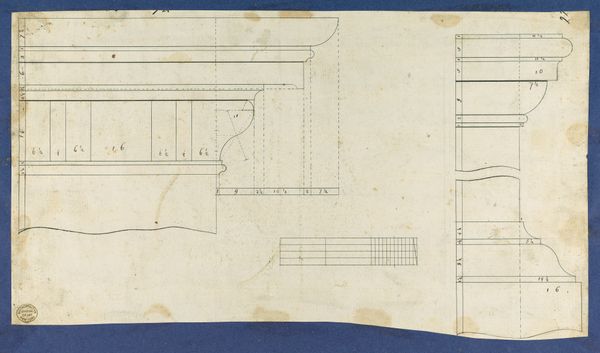
drawing, paper, pencil
#
drawing
#
paper
#
form
#
pencil
#
architectural drawing
#
line
#
academic-art
Dimensions: overall: 22.2 x 24.9 cm (8 3/4 x 9 13/16 in.) Original IAD Object: 47 5/8"high; seat 18 7/8 wide, front; Seat 18 3/4"high
Copyright: National Gallery of Art: CC0 1.0
Editor: Here we have Arthur Johnson’s "High-Back Side Chair," a pencil drawing on paper from sometime between 1935 and 1942. The detail is incredible; you can really see how carefully each line has been placed. What strikes you when you look at it? Curator: Formally speaking, the work presents a fascinating study in lines and planes. The starkness of the pencil on paper reduces the chair to its most essential geometry. Note how each view – front, side, back – emphasizes different spatial relationships within the object. Do you see how the dimensions, meticulously noted, function as integral elements of the composition? Editor: Yes, it's like a mathematical equation laid out aesthetically. The front view is particularly ornate compared to the almost severe back view. It's not just a functional plan. Curator: Precisely. The contrast in detail serves to highlight the chair's inherent structural elements against its decorative potential. Look closely at the consistency of line weight across the various views. What does that suggest? Editor: Perhaps the artist wanted all the elements to be given the same level of importance? Curator: Indeed. There is an interesting tension, then, between objective representation and subjective expression inherent in the artist's process. Consider the interplay of positive and negative space, the balance of curves and straight edges… it speaks to the underlying abstract structure, which transcends the chair's utilitarian purpose. Editor: So, it’s about extracting the essence of the object through line and form, more than about the chair itself? That makes so much sense! Curator: Absolutely. Johnson transforms a mundane object into an essay on structure and perception. A brilliant study!
Comments
No comments
Be the first to comment and join the conversation on the ultimate creative platform.
